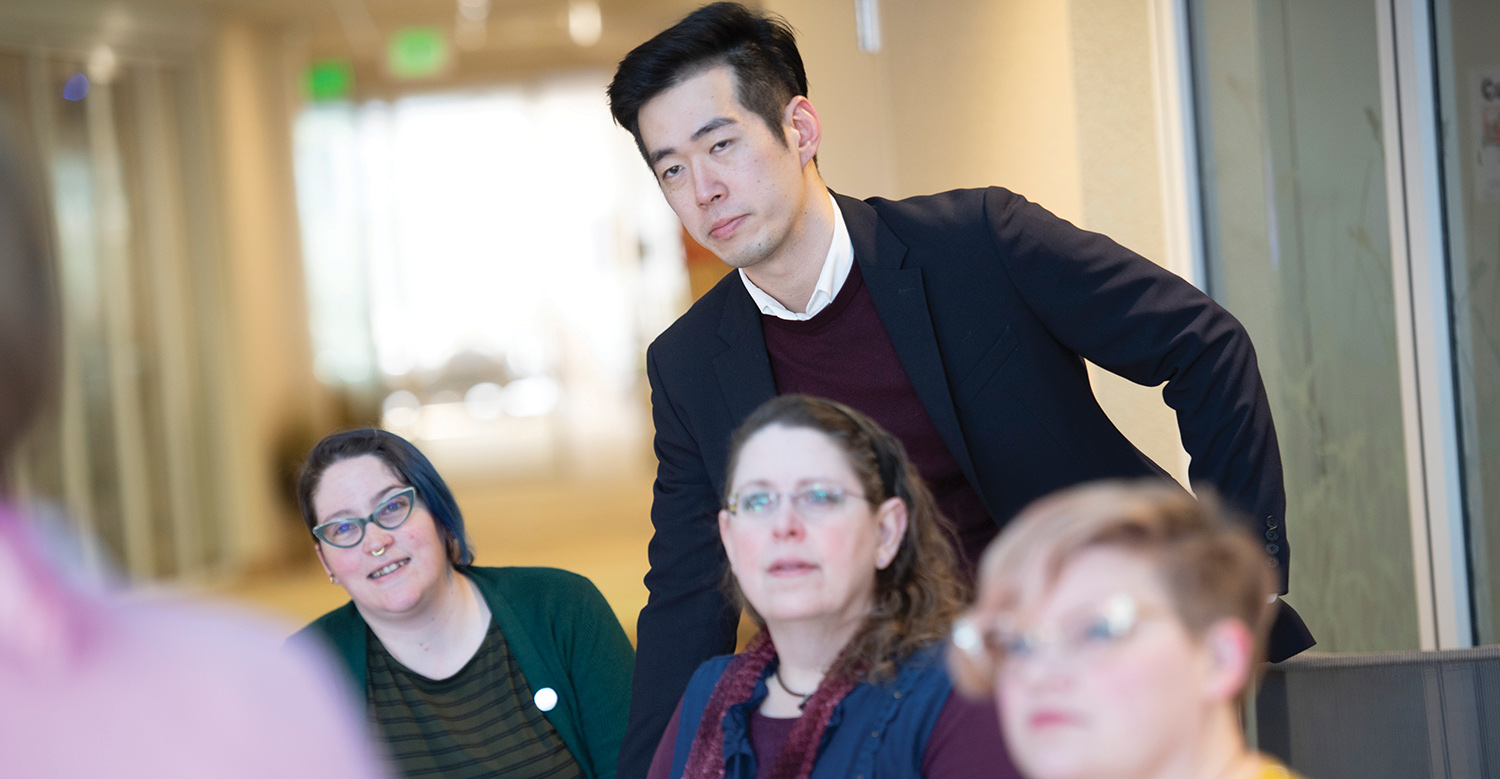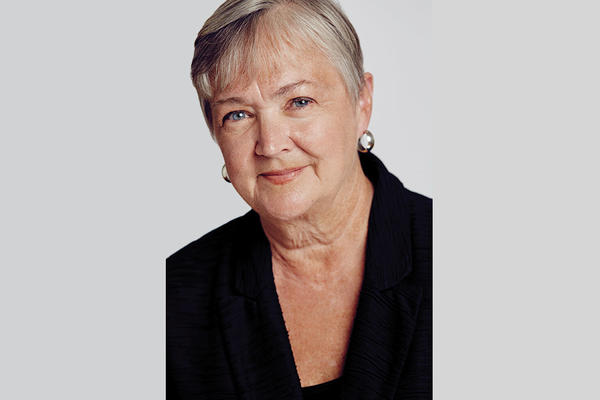Driven by data
Knoo Lee, PhD ’21, uses nursing informatics to aid vulnerable populations
May 6, 2022

As a young nurse in South Korea, Knoo Lee, PhD ’21, saw glimpses of the influence technology could wield on nursing, particularly by harnessing the power of data analytics.
To fully satisfy his curiosity, he decided he needed to travel half a world away to build a foundational knowledge in the area of nursing informatics at the University of Minnesota School of Nursing.
Thanks to that move, Lee is now applying big data analytics to better inform patient care in vulnerable populations such as children and older adults. After earning his PhD, he’s advancing his research as a postdoctoral fellow at the University of Missouri.
“Nowadays, the usage of technologies or analytics such as machine learning are very ubiquitous,” says Lee. “But what I really relish is that in the field of nursing, there is still room for improvement. And I strongly believe that I can be a part of that so that I can help people who are in need.”
Lee studied mechanical engineering before pivoting to nursing following his mandatory military service in the South Korean Navy. While working in the gastroenterology unit of a hospital in Seoul, though, he found himself restless to apply skills from his engineering background. A move back to his hometown of Busan, a port city, gave him the chance to work in telemedicine for crew members on commercial ships while also dipping his toes into data as a clinical research nurse.
“When you work in the private sector, you definitely learn a thing or two, but in terms of what’s really out there, the knowledge itself, in my own opinion, starts from academia,” he says. “So I wanted to see what’s really happening in terms of informatics.”
His search led him to the School of Nursing, which offers the second-ranked nursing informatics program in the United States, according to the U.S. News and World Report graduate school rankings.
When Lee arrived, he says he found a supportive, inclusive environment that allowed him the time to get acclimated to a new place—he discovered a new appreciation for sunlight in the fall and winter and enjoyed the balance of natural beauty and culture in the Twin Cities—and provided the resources to explore his interest in informatics.
The School of Nursing houses the Center for Nursing Informatics, connecting emerging research to patient care, and collaborates in interdisciplinary efforts with the Institute for Health Informatics, which brings together faculty and students from across the University of Minnesota.
Lee leveraged those resources while working on his dissertation under the direction of Professor Connie White Delaney, PhD, RN, FAAN, FACMI, FNAP, dean of the School of Nursing and co-director of the Center for Nursing Informatics.
Lee collaborated with multiple organizations including the National Association of School Nurses, the Centers for Disease Control and Prevention, and the Minnesota Department of Education to collect data and apply machine learning techniques to examine the causes behind chronic absenteeism in schoolchildren. That’s the type of relevant research the School of Nursing strives to produce.
“When I first got here, my sole focus and interest was sitting in the methodologies,” says Lee. “I was fortunate enough to work with people who actually work in the real world, and that really helped me a lot to proceed with my research. I’ve done some focus group interviews with school nurses, and that helped me attach what I’m doing with the real world.”
He says his PhD program has allowed him to fuse his nursing background with his interest in data-driven research. And he’s eager to use that powerful combination to help those in need.
“We need a person who brings a perspective of nursing, who knows how to interpret the results, and have the interpretation in the perspective of nursing,” he says, “so that when we are seeing the data, we know how to use this data to improve patient care.”
In his own words
Hear more about how Knoo Lee is using his PhD degree to improve patient care.


